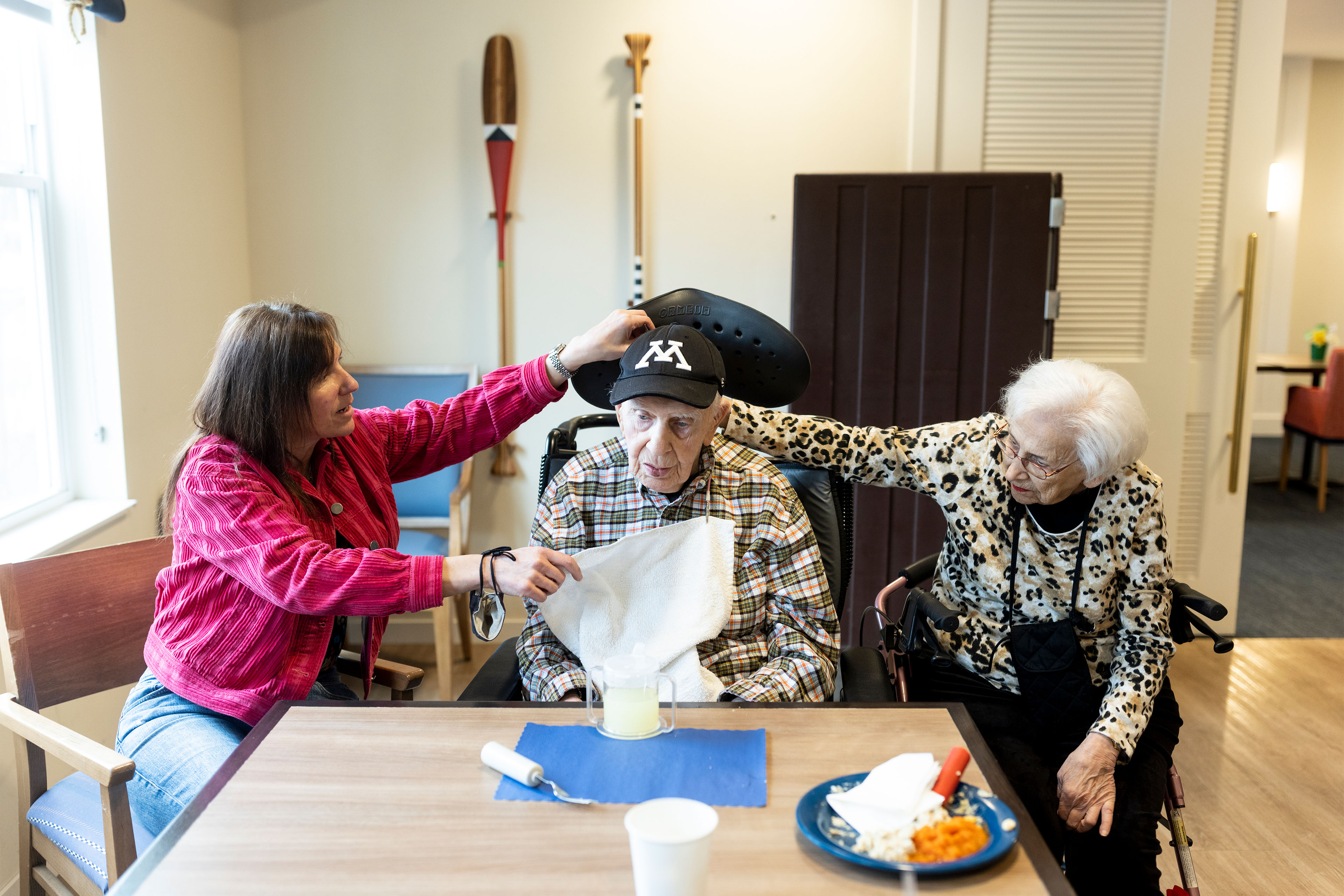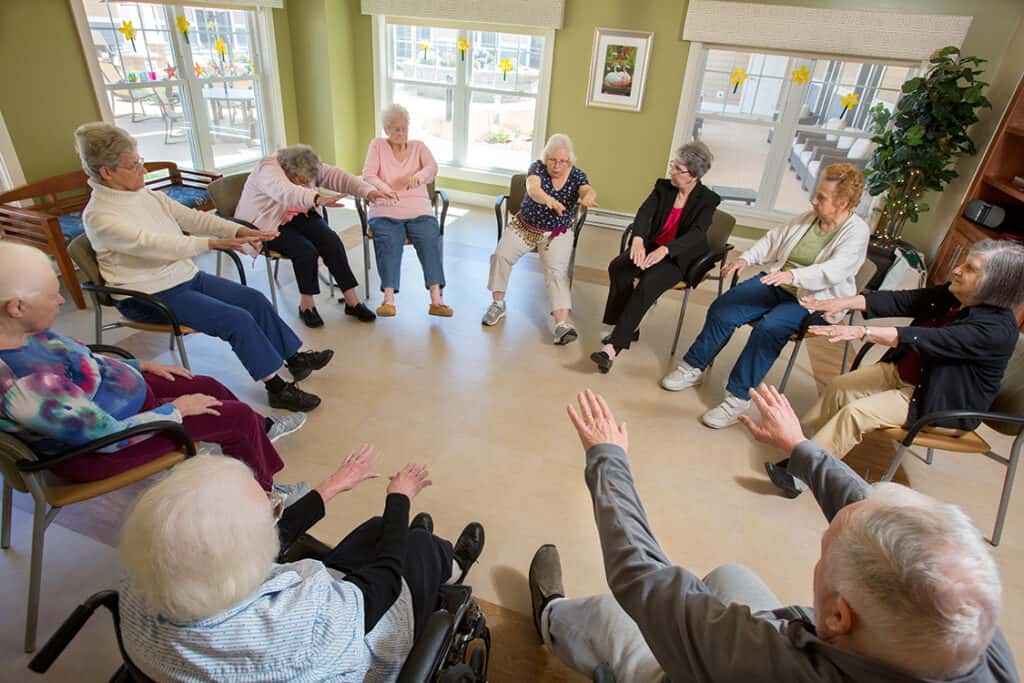Discover the advantages of Assisted Living as a senior care option.
Discover the advantages of Assisted Living as a senior care option.
Blog Article
The Duty of Assisted Residing In Offering Specialized Take Care Of Mental Deterioration Sufferers
The stipulation of specialized care for mental deterioration clients within nursing home is increasingly acknowledged as an important element of efficient mental deterioration administration. These atmospheres are made to resolve the one-of-a-kind cognitive and emotional obstacles dealt with by individuals with dementia, using tailored assistance that promotes security and health. By integrating organized routines and appealing activities, assisted living can alleviate feelings of isolation while boosting total lifestyle. The efficiency of these programs usually pivots on numerous variables, including personnel training and family involvement, triggering a more detailed examination of exactly how these aspects engage to enhance care outcomes.
Comprehending Dementia Care Requirements
Understanding the treatment requirements of people with dementia is crucial for providing reliable assistance and boosting their lifestyle. Dementia is a dynamic neurological problem that affects cognitive features such as memory, reasoning, and interaction. People with dementia commonly call for help with day-to-day activities, individualized treatment plans, and emotional assistance.
Effective mental deterioration care entails recognizing the unique challenges encountered by each individual. This includes recognizing the stages of mental deterioration, which can range from mild cognitive impairment to sophisticated phases needing thorough aid. Care needs might include support in managing everyday regimens, medication adherence, and maintaining social interactions to prevent seclusion.
In addition, sensory stimulation and familiar atmospheres can dramatically boost the well-being of individuals with dementia. Caregivers have to be educated to recognize behavioral modifications and employ techniques customized per person's choices and past experiences. Methods such as recognition therapy and reminiscence can help interact effectively and promote a feeling of security.
Ultimately, effectively dealing with the treatment needs of people with dementia needs a compassionate strategy, ongoing training for caregivers, and a dedication to keeping dignity and regard throughout the caregiving process.
Advantages of Assisted Living

Assisted living advertises social communication amongst residents, fostering a sense of neighborhood and belonging. Engaging with peers can alleviate sensations of seclusion, which are typical in those living with mental deterioration.
Additionally, lots of assisted living centers supply help with day-to-day activities, such as medicine management, showering, and dish prep work. This assistance allows citizens to preserve their freedom while ensuring their wellness and wellness are prioritized. Inevitably, assisted living functions as a useful resource, stabilizing treatment and freedom for individuals with dementia and their families.

Specialized Programs and Activities
(Charlotte Alzheimer's Care)Recognizing the one-of-a-kind requirements of individuals with mental deterioration, several nursing home carry out customized programs and activities developed to enhance cognitive function and promote general well-being. These programs frequently include cognitive stimulation tasks that involve locals in memory games, problems, and reminiscence treatment, which urges the sharing of personal tales and past experiences.
In addition, art and music therapy play considerable functions in fostering creativity and psychological expression (Memory Care). Involving citizens in painting, crafting, or songs sessions can offer healing advantages, helping to decrease anxiousness and enhance mood. Exercises, such as gentle workouts and dance sessions, are also crucial, as they promote movement and physical health and wellness while motivating social communication amongst citizens
Structured day-to-day routines are typically established to offer a feeling of stability and predictability for people with mental deterioration. These regimens can consist of scheduled dish times, group activities, and individualized care plans that deal with specific passions and capacities. Clicking Here By producing an enhancing environment full of customized activities, helped living centers not only enhance the lifestyle for mental deterioration clients however additionally foster a sense of neighborhood and belonging.
Educated Personnel and Support
(Memory Care Facility Charlotte)In helped living centers, the existence of trained personnel is essential for providing efficient support to people with dementia. These experts possess specialized understanding and abilities to deal with the one-of-a-kind needs of homeowners, guaranteeing their safety and security, comfort, and health. Employee obtain training in dementia treatment, that includes comprehending the development of the disease, acknowledging behavior changes, and utilizing reliable communication techniques.
In addition, trained staff are furnished to carry out customized treatment strategies tailored to each citizen's choices and abilities. This individualized approach promotes a feeling of freedom and self-respect, allowing homeowners to take part in purposeful tasks that enhance their lifestyle. The staff also play a crucial function in checking health and wellness, quickly identifying any type of modifications in condition that might require medical interest.
In addition to guide care, skilled personnel supply emotional support to residents, helping to minimize feelings of confusion and anxiety that frequently go along with dementia. Their compassionate technique develops a caring atmosphere where locals feel valued and understood - Memory Care. Inevitably, the knowledge and dedication of trained staff are essential in delivering comprehensive treatment that satisfies the complicated needs of people coping with dementia in assisted living settings
Household Involvement and Resources
Family participation plays a considerable role in the treatment of individuals with dementia in assisted living centers. Engaging member of the family in the treatment procedure not just enhances the psychological wellness of the local but likewise fosters a joint atmosphere where care strategies can be tailored to specific needs. Family members can supply valuable understandings right into the preferences, history, and actions of their loved ones, which can inform caregivers and bring about even more customized treatment techniques.
Moreover, aided living centers usually provide sources for households, such as support system and educational workshops. These sources can help family members comprehend dementia, improve communication techniques, and create coping systems. Participation in these programs can empower member of the family, equipping them with the devices necessary to sustain their loved ones successfully.
In addition, regular interaction between family members and staff is important. This recurring dialogue enables family members to remain notified about their loved one's progress and any kind of changes in care plans. Ultimately, a strong collaboration in between families and aided living centers cultivates a setting of trust and understanding, making certain that people with mental deterioration receive the specialized treatment they should have while maintaining their household links.
Final Thought
To conclude, helped living centers play an important function in resolving the one-of-a-kind demands of dementia patients with personalized care and support. By promoting safe settings, promoting social communication, and implementing structured routines, these facilities enhance the total wellness of citizens. The involvement of experienced personnel and households additionally enriches the care experience, guaranteeing that specific choices and histories are respected. Eventually, assisted living offers vital sources that significantly enhance the quality of life for those dealing with dementia.
Report this page